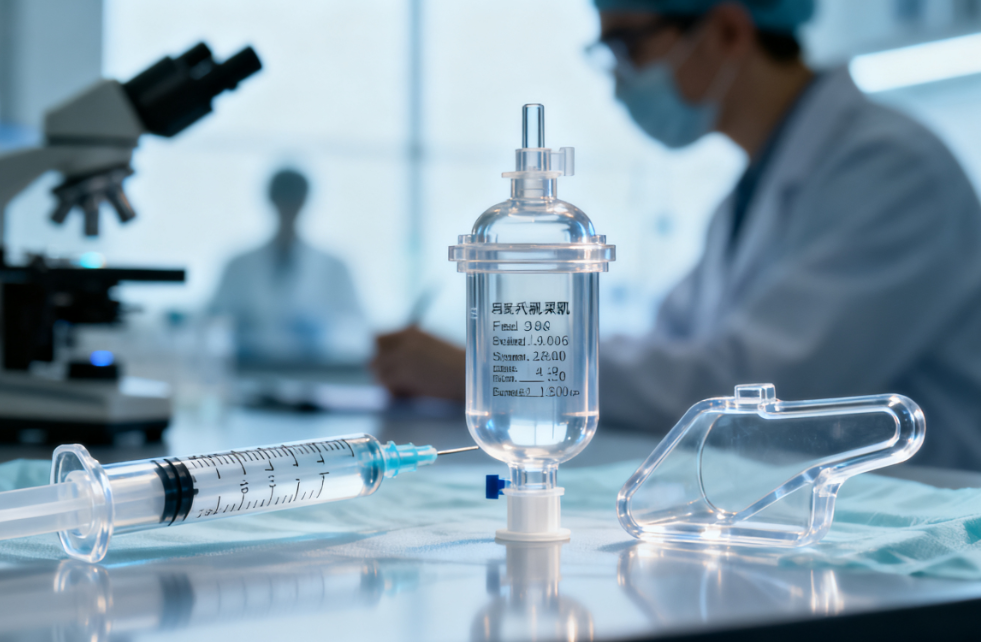How Medical Device Innovation Is Fueling the Growth of Polysulfone Materials
In recent years, the medical device industry has undergone a dramatic transformation — one defined by miniaturization, higher performance demands, stricter sterilization and biocompatibility requirements, and the pursuit of sustainable materials. At the heart of this transformation lies polysulfone (PSU), a high-performance thermoplastic whose properties are uniquely suited for modern medical applications. As innovations in medical devices accelerate, the demand for polysulfone is rising sharply, with profound implications for manufacturers, device designers, and material suppliers alike.

1. Why Polysulfone Is Gaining Traction in Medical Devices
Polysulfone offers a mix of attributes that align closely with what device makers require today:
Sterilization resistance: PSU can withstand repeated autoclave cycles, gamma irradiation, and chemical disinfectants without significant degradation.
Biocompatibility and chemical inertness: In blood-contacting or fluid-handling medical devices — such as dialysis filters, infusion ports, and implantable housings — the chemical resistance and biocompatibility of polysulfone give it a clear edge.
High thermal and mechanical performance: With heat deflection temperatures often above 170 °C, PSU provides mechanical strength and dimensional stability under demanding sterilization conditions.
Imaging compatibility: As devices increasingly integrate MRI, CT, and fluoroscopy guidance, the radiolucent nature of polysulfone makes it a favorable material choice.
2. Key Device Trends Driving Polysulfone Adoption
Several converging trends in healthcare are boosting polysulfone demand:
a) Growth of minimally invasive surgery & implantable devices
The rise of less-invasive interventions has created the need for complex, durable, and sterilization-resistant components — areas where PSU excels.
b) Expansion of chronic disease treatment & dialysis systems
With kidney disease prevalence increasing worldwide, polysulfone membranes and housings are becoming the standard for high-performance dialysis systems.
c) Single-use vs reusable considerations
Hospitals are under pressure to meet hygiene and sterilization standards. PSU enables reusable components that retain integrity across many cycles — an advantage over lower-grade plastics.
d) Stricter regulatory & safety environments
New international medical regulations require materials that survive repeated sterilization and cleaning cycles while maintaining biocompatibility — a space where PSU is already proven.
e) Shift toward advanced manufacturing
As 3D printing and micro-injection molding evolve, polysulfone grades are being adapted for finer geometries and precision-engineered medical parts.
3. Market Outlook and Growth Potential
The global market for polysulfone is expanding rapidly, with medical devices emerging as one of its fastest-growing segments. Analysts project the total PSU market to reach billions in value over the next decade, driven by demand for high-purity, medical-grade resins. The medical sector accounts for an estimated one-third of total polysulfone consumption, reflecting how critical this material has become in healthcare innovation.
Asia-Pacific remains the fastest-growing region, particularly in countries like China and India, where healthcare infrastructure and regulatory compliance are advancing rapidly.
4. Challenges and Considerations for Manufacturers
While the outlook for polysulfone in the medical field is strong, there are important considerations:
Raw-material cost and purity: High-grade PSU suitable for medical use is more expensive and must meet strict purity and traceability requirements.
Competition from alternatives: PEEK, PPSU, and polyetheretherketone blends still compete in certain device categories, challenging PSU on cost-performance ratios.
Regulatory complexity: Meeting ISO, FDA, and MDR certification standards requires extensive biocompatibility and sterilization testing.
Sustainability demands: Although PSU is recyclable in theory, the industry is still developing circular-economy systems for medical polymers.
5. Strategic Implications for Device Design and Procurement
For device manufacturers and suppliers, effective use of polysulfone requires forward-thinking strategy:
Early material selection during device design allows optimal cost-to-performance integration.
Partnerships with material suppliers enable access to customized PSU grades (glass-filled, flame-retardant, clarity-enhanced).
Supply-chain planning ensures timely access to qualified medical-grade materials.
Lifecycle alignment — reusable devices gain the most from PSU’s durability and sterilization endurance.
Sustainability initiatives — exploring recycled PSU or monomer recovery could enhance long-term compliance and brand reputation.
6. The Future of Polysulfone in Medical Innovation
Looking ahead, polysulfone is set to play an even larger role as new technologies emerge:
3D-printed PSU parts for surgical and diagnostic equipment.
Smart medical wearables using PSU housings for sterilization resistance.
PSU membranes in next-generation cell and gene therapy manufacturing.
Greater adoption in developing markets with growing medical infrastructure.
Conclusion
In today’s fast-evolving healthcare landscape, polysulfone stands out as a material that meets the demands of next-generation medical devices: safety, sterilization resilience, strength, and precision. Its growing adoption across surgical instruments, dialysis systems, and advanced medical housings underscores its unmatched reliability.
For manufacturers and OEMs seeking material partners who understand both medical innovation and polymer performance, SL Tec provides advanced polysulfone material solutions — from high-purity medical-grade resins to engineered compounds designed for sterilization and biocompatibility.
Sources














